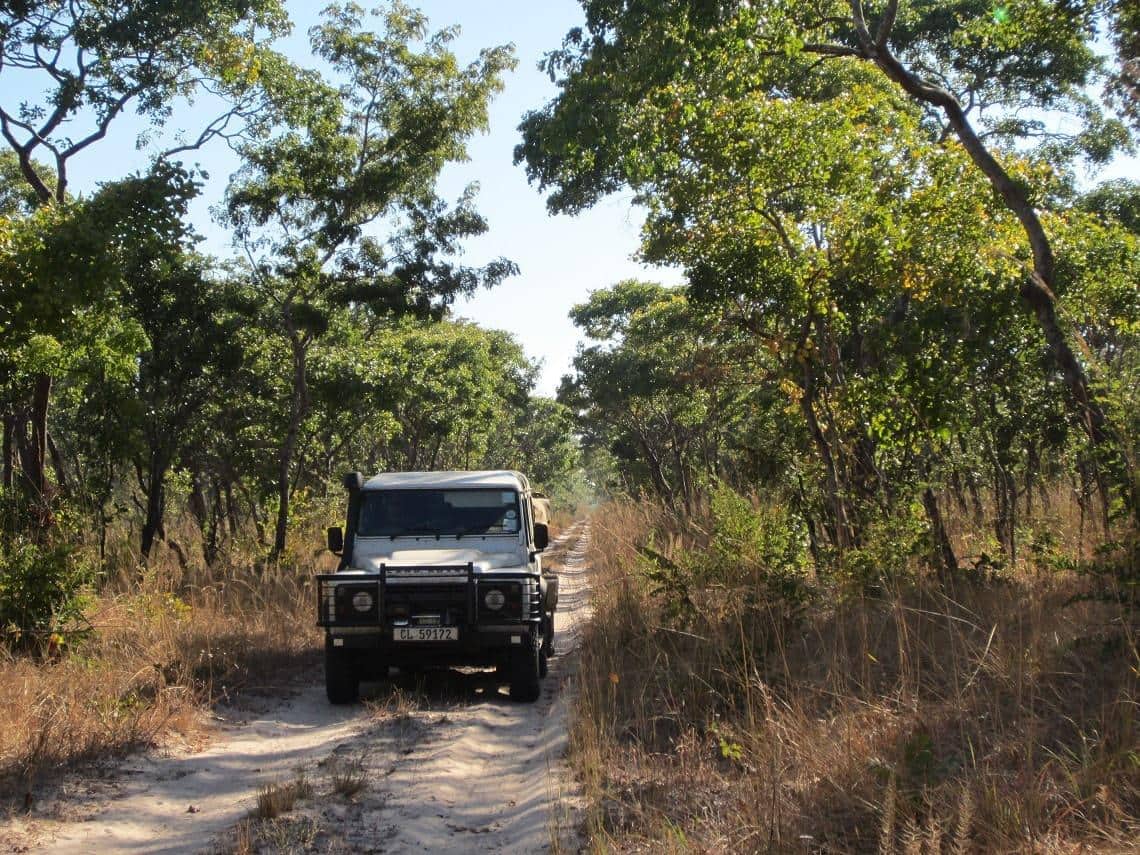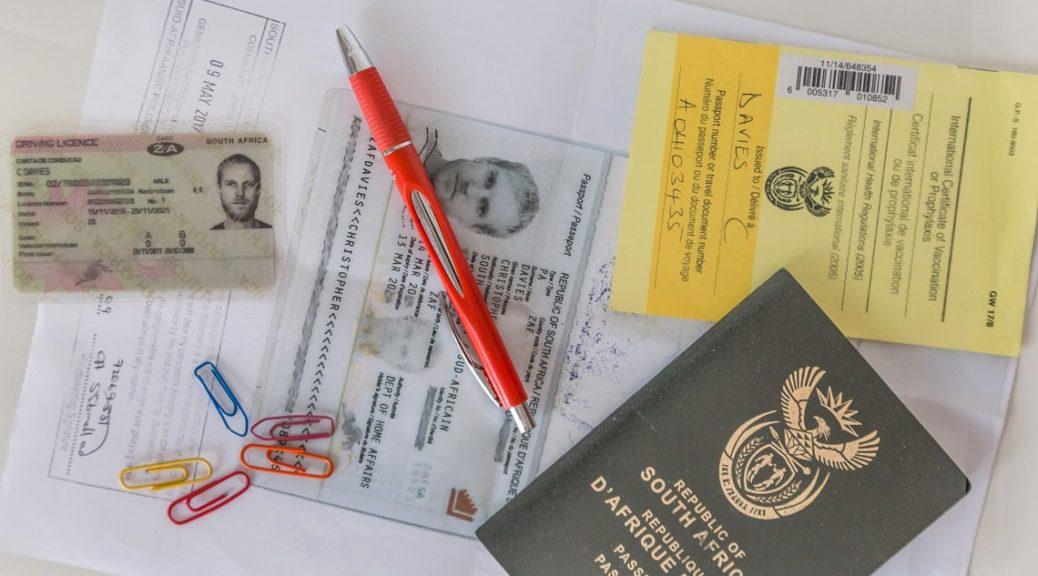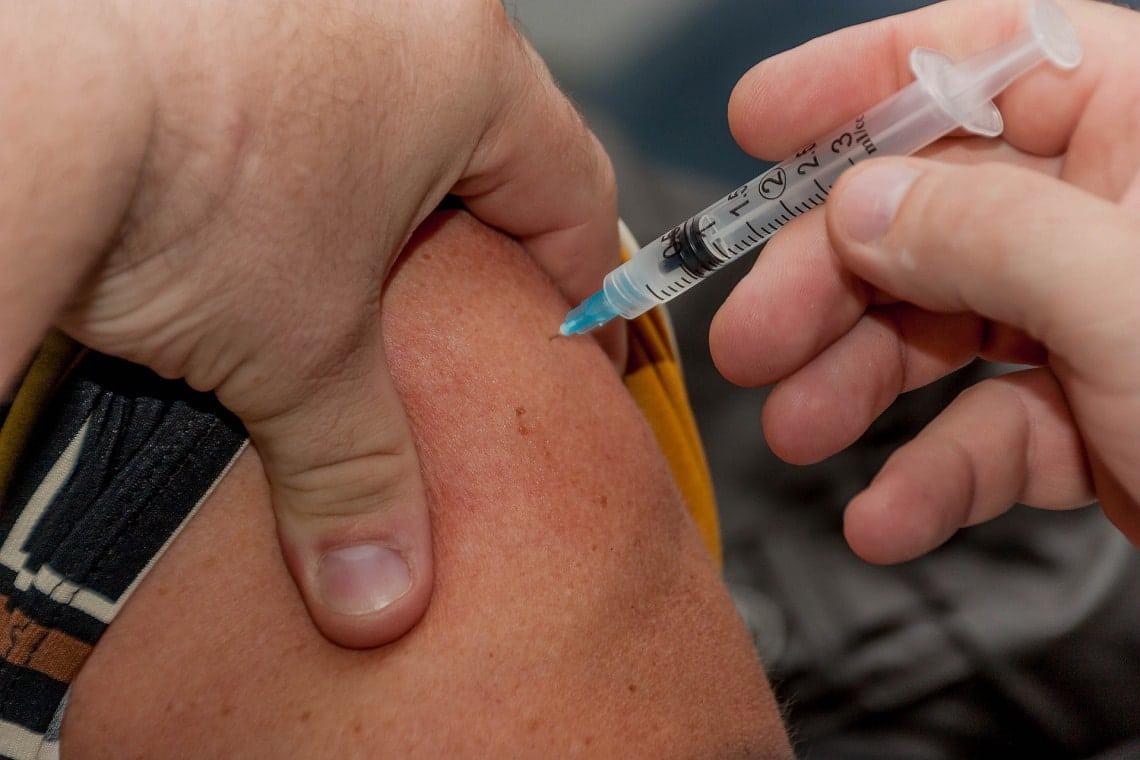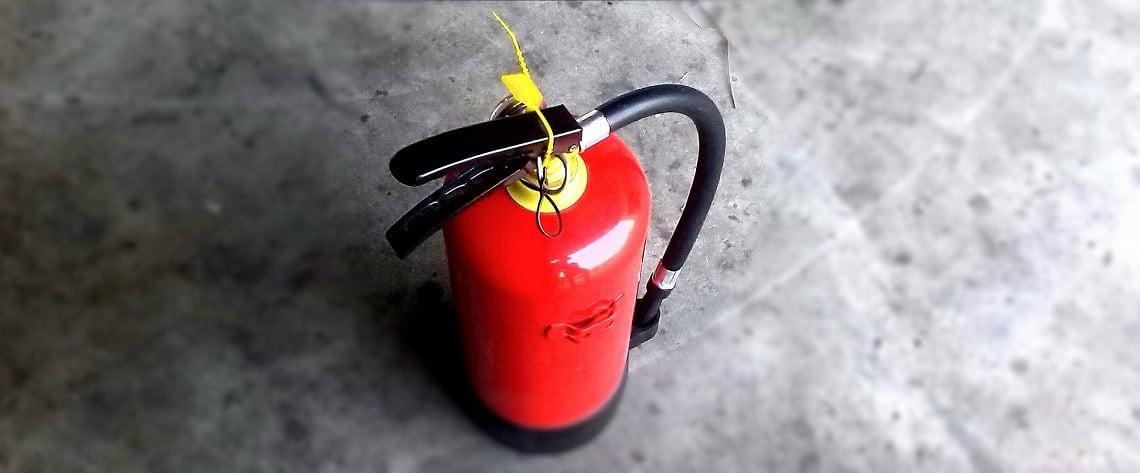Land borders in Africa have an ominous reputation, but they’re usually not as bad as people think. There are notable exceptions – one entry into Egypt cost me five hours and USD170 in unavoidable bribes. But those are the horror stories we tell our friends, whereas most crossings are rather dull and uneventful; just a bit of a hassle and an unwanted, but unfortunately legitimate, drain on the wallet. By Chris Davies
Also read: Tips for hassle-free border crossing in Africa: At the border
Most border trouble comes down to inexperience or impatience – and that’s true of borders worldwide. Knowledge is the key to every successful border crossing, but as every country’s different, and regulations change all the time, it’d be impossible (and rapidly outdated), to try and list all specifics. There are, however, general tips that can ease your crossing, so consider these before you travel.

Your passport
Just about every country in the world requires that your passport be valid for at least six months after your desired exit date. Check the expiry before you travel.
Your kids’ documents
Since June 2015 you need an unabridged birth certificate for any minor accompanying you across a South African border, with further documents required if the kids are not yours, or only one parent is present. Full details available at the Department of Home Affairs.
Also read: What you need to get through the border
Your driver’s licence
A South African card licence is fine for neighbouring countries, but as you progress further field, it’s a good idea to get an International Driving Permit too. It may or may not be asked for at the border, but can be an easy extortion point, especially at a police checkpoint down the road. IDPs must be obtained in your home country. South Africans can apply at the South African AA.
Visas
South Africans don’t need visas for neighbouring countries, and for many other African countries, visas are easily obtainable at the border. It’s usually much less hassle to get a visa at the border than to try and get it in advance from an embassy.
Tip from T4A: Rules do change. No visa and meeting the wrong official on the wrong day, might mean heading back home. It’s always recommended to get your visa before you depart to avoid hassles and save time at the border.
Also read: Border crossings in Southern and East Africa
Inoculations and vaccinations
The former can be compulsory, the latter just a good idea. Yellow fever is the typical must-have inoculation, although regulations for Southern African countries have relaxed recently. Many Western and Central African countries still need it, however, and the safest bet is to get it done and carry your yellow card with you.
Vehicle documents
This is the most fraught aspect of border crossing, with the most variability country to country. In general, the following applies:
#1: For owners You’ll need your original vehicle registration papers, or a certified copy. If your vehicle is financed, then you’ll need a letter of authority from your institution or bank. If your spouse/parent owns the vehicle, treat it as a rental and see #2.
#2: For rentals You’ll need a certified copy of the registration papers and a letter from the rental company giving permission to cross, dates, and the driver’s details (including a copy of the driver’s ID). Check that the vehicle registration, VIN and engine numbers match the documents you’ve been given. Mistakes can happen.
#3: Police clearance Regulations seem to be changing and in many cases police clearance is not required for temporary holiday travel with a SA registered vehicle. Contact your local AA branch or visit their website for more information if you are not travelling with a SA registered vehicle.
#4: Your ID/Passport Make sure your identification matches that used on your vehicle documents. If your registration papers show your RSA ID number, then your proof of identity should do so too.
#5: Insurance If you’re covered by your SA insurance, then a letter to prove it is a good idea, but if country-specific insurance is required, you’ll have to buy it at the border regardless. As it’s generally issued by third parties, it’s a more common area for abuse. Try to find the correct prices before you arrive.
#6: Import permits and the Carnet de Passage en Douane For Southern African travel, it’s not necessary to get an import permit in advance, although you’ll have to pay some form of small, cross-border transport fee. Further afield, you’ll need to buy a Temporary Import Permit (TIP) at the border, which you must not lose or face serious fines when trying to leave.
Tip from T4A: If your vehicle’s registration number is different on your registration document and number plates, make sure to travel with your original licence disk document and registration document.
For extended trips, especially into North Africa, it’s worth considering a Carnet de Passage en Douane, which allows you to move your vehicle in and out of a country without incurring import/export fees. Carnets have their own associated costs, however, which depend on the countries you’re planning to visit.
Tip from T4A: Take note that Carnet can only be obtained in the country of origin. If your vehicle is SA registered, you buy it in SA, if it is registered in Germany, you get it in Germany. It is possible to arrange it when you are already travelling, but you may have to wait a week or two. Best to arrange it before your departure.
Also read: Ins and outs of a Carnet de Passage
Certified copies
Make certified copies of all your important documents and keep them somewhere separate and safe.
Prohibited goods
A tricky one, with regulations country-specific and changing all the time. Botswana is the classic example, with erratically enforced bans on meat, dairy and fresh produce. To be safe, avoid crossing borders (and in-country vet fences) with any of these food items.
Also read: Veterinary fences in Namibia and Botswana
Local currency
Not an issue for travel to our neighbours, but further north you’ll need local currency or US dollars for all border transactions. Some borders do take cards, but that’s a great way to get your bank card cloned.
Prepare your vehicle
Reflective tape on the sides, front and rear of your vehicle, triangles, fire extinguishers, reflective vests, and ZA stickers. These can all be asked for, especially at Zambian and Zimbabwe borders. Check online for the latest traveller reports.
Get the inside track
Want the nitty-gritty on border requirements for Southern African travel? T4A’s Traveller’s Atlas has detailed information on border post red tape, from required documents and fees payable to prohibited goods. Get your atlas to take the guessing out of border crossing.
Ready to tackle the border? Read up on the tips to cross borders with confidence.
[Featured picture by Chris Davies]
Shop: Get the latest Tracks4Africa GPS and Paper Maps
Did you know that all Tracks4Africa Africa GPS Map owners get one free update to the latest version, and 50% off any subsequent updates purchased? Go exploring with the most up-to-date map at your fingertips. Visit our online shop for our latest guide books, paper maps and GPS navigation.





Can I travel with a pet? What documents di I need?
For cross-border travel, your pet must be microchipped and have proof of the necessary vaccinations (like rabies), endorsed by the state vet. Depending on the countries you want to visit, there may be further requirements. Learn more here: https://globalpaws.co.za/country-requirements/south-africa/
When you get swamped by ” assistants” as you step out of your vehicle at the border select one and agree a price for him to go with you to customs, immigration, police clearance, third party and sometimes health department. Also agree the price for the vehicle minder in advance.In some places the third party office can be a container hidden round behind other buildings.
My wife and I have been through many African borders and find the above the easiest way to travel.
A very useful article. If I may add :
Regarding travelling with children ( official definition of a child is under the age of 18 ). If only one parent is accompanying the child in addition to the unabridged birth certificate, an Affidavit is required from the absent parent granting the child to travel with the other parent.
To further clarify, this is a South African requirement when departing or arriving South Africa.
Thanks it`s most helpful.